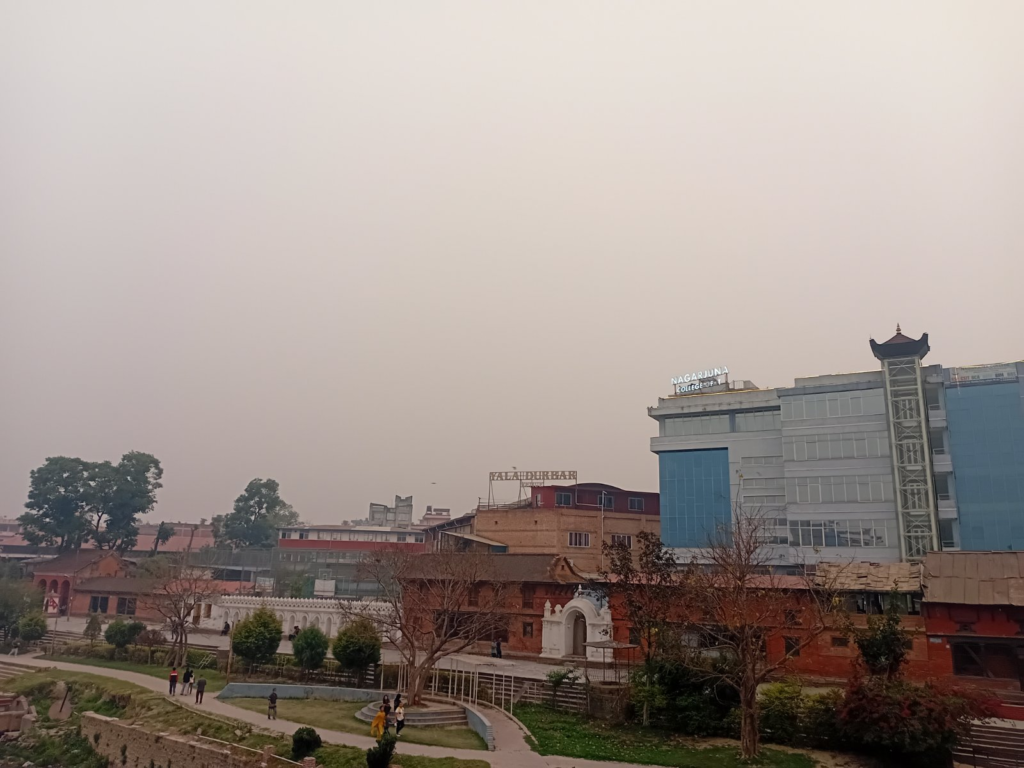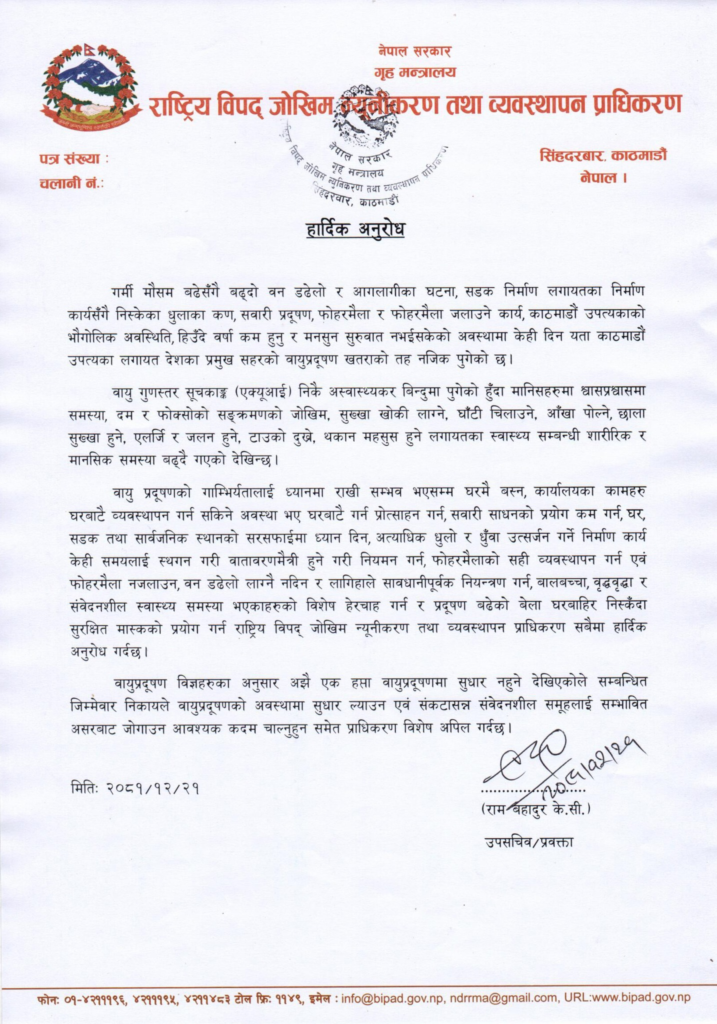Kathmandu’s Air Quality Hazardous, Government Advises Staying Home
Kathmandu’s Air Pollution is Dangerous, Nepal Government Advises Staying Home
On Thursday, Kathmandu’s Air Quality Index (AQI) soared to 308, making it one of the most polluted cities in the world. Baghdad, Iraq, ranked second with an AQI of 189. International air quality standards classify an AQI above 50 as unhealthy.

Kathmandu’s Air Quality Hazardous, Government Advises Staying Home
The National Disaster Risk Reduction and Management Authority (NDRRMA) has warned that rising temperatures, increasing forest fires, vehicle emissions, dust from construction activities, improper waste management, and the Valley’s geographic conditions have pushed air pollution levels to dangerous heights in Kathmandu and other major cities across Nepal.
The Nepal government officially established NDRRMA under the Disaster Risk Reduction and Management Act, 2074 BS (2017 AD).
Due to the poor air quality, health experts have reported a surge in respiratory problems, asthma, lung infections, dry cough, throat irritation, eye discomfort, skin dryness, allergies, headaches, and fatigue.

NDRRMA has urged people to remain indoors as much as possible, work from home if feasible, limit vehicle usage, maintain cleanliness in homes and public spaces, and temporarily halt dust-producing construction activities.

The government has also advised proper waste management, strict avoidance of burning waste, prevention of forest fires, and extra care for children, the elderly, and individuals with pre-existing health conditions.
Experts recommend that people wear protective masks when stepping outdoors to reduce exposure to pollutants and harmful particles in the air.
Read:
Experts have indicated that air pollution levels are unlikely to improve for at least another week. Given the ongoing health risks, NDRRMA has called on relevant authorities to take urgent action to reduce pollution and protect vulnerable populations.
NDRRMA spokesperson Ram Bahadur KC stated in an official notice, “We appeal to all responsible agencies to take necessary measures to improve air quality and safeguard sensitive groups from potential health hazards.”


 Why Nepal’s MaPaSe Drink-Driving Tests Called Unscientific
Why Nepal’s MaPaSe Drink-Driving Tests Called Unscientific  Teachers’ Demands Cannot Be Addressed in Budget Session
Teachers’ Demands Cannot Be Addressed in Budget Session  Gagan Thapa on Kulman Ministers Should Focus on What Matters
Gagan Thapa on Kulman Ministers Should Focus on What Matters  Forget Murder, I Haven’t Even Slapped Anyone: Prachanda
Forget Murder, I Haven’t Even Slapped Anyone: Prachanda  Nepal Government to Ban Facebook, X, Instagram?
Nepal Government to Ban Facebook, X, Instagram?  Nepal Police Catches Durga Prasai
Nepal Police Catches Durga Prasai